RPB Announces Stein Innovation Awards

Research to Prevent Blindness (RPB) is rolling out a new category of grants designed to foster collaboration between scientists working within departments of ophthalmology and those in complementary...
RPB/IRFF Announce Catalyst Awards for AMD Stem Cell Research

Research to Prevent Blindness (RPB) is partnering with the International Retinal Research Foundation (IRRF) to advance knowledge about age-related macular degeneration (AMD) through novel stem cell research. ...
RPB Provides $10.7 Million in Grants
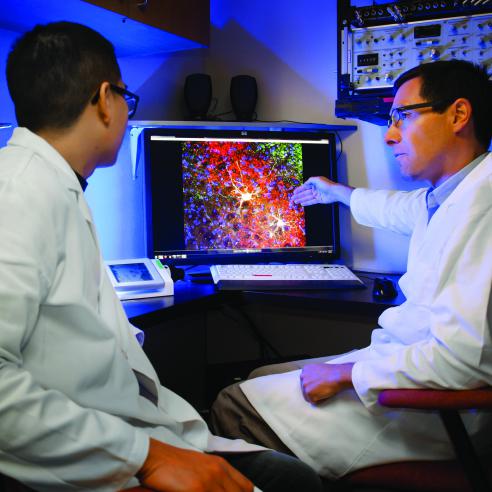
New York, NY, December, 2014 -- With the approval of 33 new grants to individual scientists and 24 grants to departments of ophthalmology, Research to Prevent Blindness (RPB), the leading foundation supporting eye...
Macular Degeneration Might Be Treatable With Existing HIV Drugs
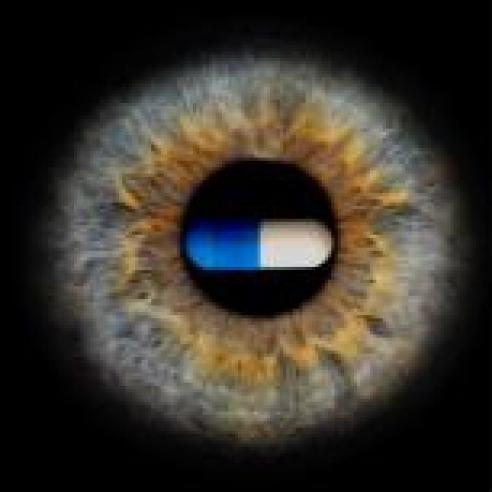
HIV/AIDS drugs that have been used for the last 30 years could be used to treat age-related macular degeneration (AMD), according to a study partially supported by unrestricted funds from RPB. The researchers...
Man Sees Again After 33 Years

Larry Hester, 66, has been blind for half his life from retinitis pigmentosa. In September, 2014, an electronic stimulator called the Argus 2 (developed, in part, with RPB support) was surgically implanted in his...
RPB Convenes Vision Research Funders to Explore Potential for Collaborative Initiatives
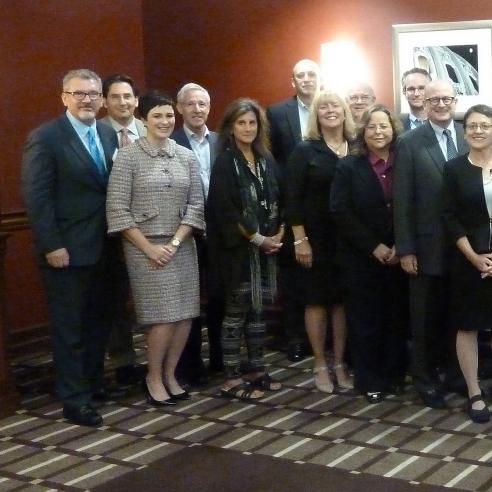
Click here for photo identification. Photo ID includes links to all attendees' web sites.Research to Prevent Blindness hosted a convening of nearly two dozen organizations committed to the advancement of eye...
New Poll Places Fear of Vision Loss at the Top of Americans’ Health Concerns

"We can now give hope to patients who previously had no hope. Although the federal investment in the NEI provides seed funding for potential breakthroughs, we need private philanthropy and industry to invest...
RPB helps create a $3.75 million endowed vision research chair at UAB

The endowment will enable the University of Alabama Birmingham department of ophthalmology to recruit a world-class scientist to join its existing roster of international experts in the study of blinding diseases...
Omega-3 Inhibits Blood Vessel Growth in a Model of Age-Related Macular Degeneration

Age-related macular degeneration (AMD), which is characterized by choroidal neovascularization (CNV), or blood vessel growth, is the primary cause of blindness in elderly individuals of industrialized countries. The...
RPB Donates Bust of Dr. Jules Stein to The NEI

In January of 2014, National Eye Institute director Dr. Paul Sieving accepted a bust of Dr. Jules Stein on behalf of the NEI. The bust, created by renowned Cubist sculptor Jacques Lipchitz, was a gift from RPB. Dr....
Light-sensitive "eye-in-a-dish" created from stem cells
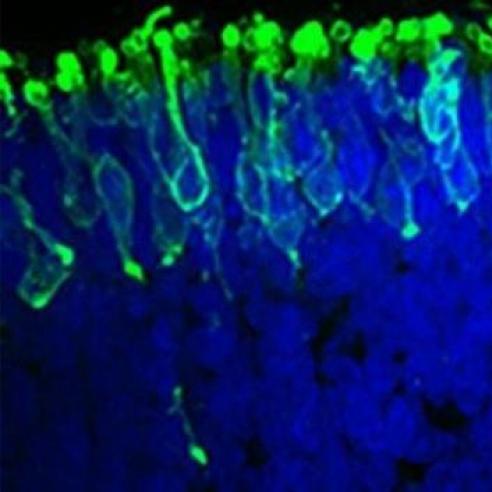
According to RPB Special Scholar Awardee Dr. Valeria Canto-Soler, Johns Hopkins University School of Medicine: "We have basically created a miniature human retina in a dish that not only has the architectural...
New research sheds light on how UV rays may contribute to cataract

A new study offers an explanation for how years of chronic sunlight exposure can increase the risk of cataract, a clouding of the eye lens that typically occurs with aging. The study firms up a link between the...
Amblyopia Research Gets a Boost: RPB Matches a Special Donor’s Targeted Support

RPB is doubling its annual support of amblyopia research and honoring an esteemed donor, the late Diane Disney Miller. Amblyopia, commonly referred to as "lazy eye," is the major cause of monocular...
RPB Accelerates Retinitis Pigmentosa Research with Awards to Leading Scientists

RPB is providing $500,000 to accelerate the development of treatments for Retinitis Pigmentosa (RP) -- a family of retinal diseases that progressively create extreme tunnel vision, loss of night vision and leave...
Contacts better than permanent lenses for babies after cataract surgery
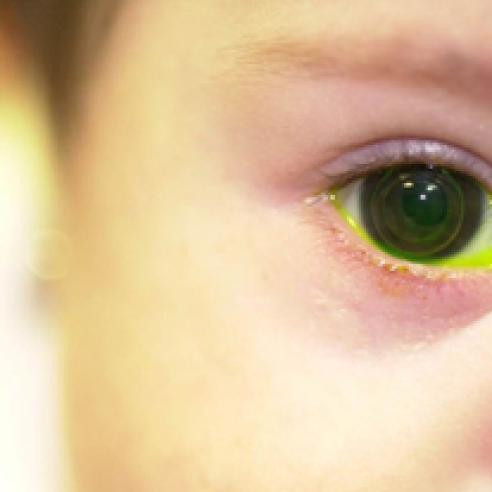
For adults and children who undergo cataract surgery, implantation of an artificial lens is the standard of care. But a clinical trial, funded jointly by RPB and the National Eye Institute, suggests that for most...
Research Finds Risk of Glaucoma Blindness Drops by Half

Compared to earlier generations, today's generation has a 50% reduced probability of losing sight to glaucoma 20 years after a diagnosis, according to research supported by RPB.Read the story.Read the...
Glaucoma may affect patients’ travel habits and health

For more on the impact of vision loss, read RPB's recent newsletter. RPB-supported research shows that patients with visual field loss from glaucoma travel less than those with normal vision,curtail...
Glaucoma Medication Delivered By Contact Lens

RPB-supported researchers have demonstrated that a new type of contact lens can deliver a therapeutic amount of a glaucoma drug every day for a month. The breakthrough, which has been pursued for decades, may...
Older Adults Experience More Vision Difficulties at Home
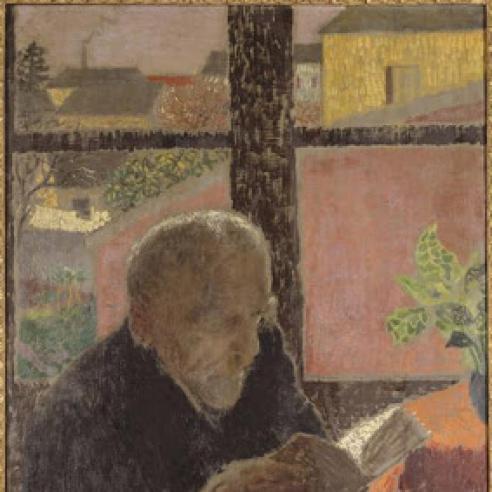
Adults have better vision in clinics rather than at home, due to poor home lighting, according to an RPB-supported study by Anjali M. Bhorade, M.D., MSCI, of the Washington University School of Medicine, St. Louis,...
Simple Urine Test Could Diagnose Retinitis Pigmentosa

Research led by RPB-supported physician-scientists has produced a breakthrough discovery in diagnosing a blinding disease that affects about 1 in 4,000 people in the United States. Read the full story.
A Promising New Treatment for Macular Degeneration

RPB-supported researchers have published new findings indicating they are on the verge of developing a better treatment than the anti-VEGF injections currently used for macular degeneration. In studies, a class of...
RPB Awards $5.3 Million In Grants to Support Eye Research

Research to Prevent Blindness (RPB), the world's leading voluntary health organization supporting eye research, has awarded 43 grants totaling $5,308,000 for research into the causes, treatment, and...
RPB Awards Important Laboratory Grant to Department of Ophthalmology at the University of Florida

Research to Prevent Blindness (RPB) has awarded a prestigious, one-time laboratory grant of $600,000 to the Department of Ophthalmology at the University of Florida, College of Medicine. The newly created...
RPB Researcher Pursues Clues to Rare Eye Disease that Could Help Millions

RPB Career Development Awardee Vinit Mahajan, MD, PhD is studying members of an Iowa family who are facing varying stages of blindness related to a rare genetic disorder known as autosomal dominant neovascular...
Researchers Discover New Relationship Between Rods and Cones

Rods and cones, the major light receptor cells in the mammalian eye, are densely packed across the retina where they convert light into the image-forming signals that allow the brain to create vision. Rods...
RPB and OCT Research
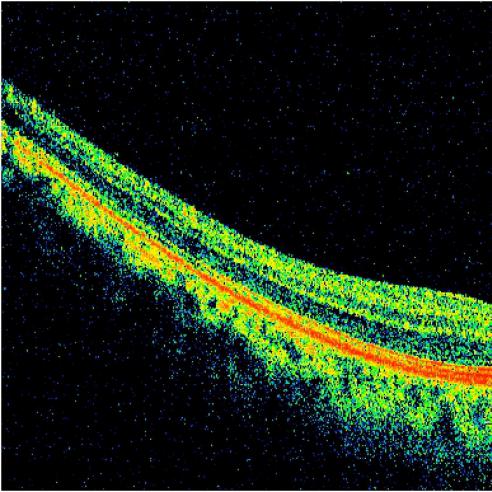
In addition to Dr. Wang’s work, RPB has funded many important OCT-related research projects since 2004: Correlation of specific gene mutation in Stargardt’s disease with OCT-identified...
RPB Funding Yields Big Gains: Report from ARVO

Crowds at the ARVO 2013 meeting of nearly 12,000 vision scientists and physicians from around the world heard and saw the hundreds of ways that funding from Research to Prevent Blindness (RPB) is yielding major...
Bionic Retina Soon Available In the U.S.

The first implantable device to treat advanced retinitis pigmentosa, the Argus II Retinal Prosthesis System, will be available at several clinical centers across the U.S. later this year. The system took more...
Coming Soon, A Blood Test to Predict When Dry AMD Becomes Wet?
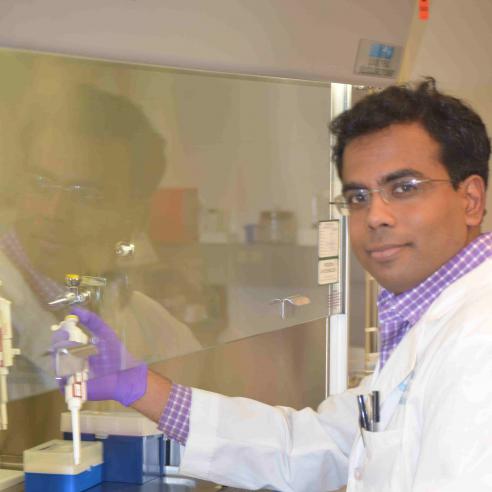
RPB-supported researchers have published a study that is the foundation for a promising new blood test to detect the earliest progression of macular degeneration to its more serious form, creating an opportunity for...
Research to Prevent Blindness, Inc. Names Brian Hofland as President

New York, NY, January 7, 2013 --Research to Prevent Blindness, Inc. (RPB) today named Brian F. Hofland, Ph.D. as the sixth president in its 52-year history. RPB is the leading nonprofit source of...
Test Identifies Eye Cancer Tumors Likely to Spread

RPB researchers have developed a genetic test that can accurately predict whether the most common form of eye cancer will spread to other parts of the body, particularly the liver. In 459 patients with ocular...
New Technique Yields Insights into Human Tissues

In another demonstration of the ripple effect created by a single, RPB-supported investigation, researchers, using a new microscopy technique focused on eye tissues damaged by scarring in diabetic patients, have...
RPB Study Urges Glaucoma Screening for Older African Americans
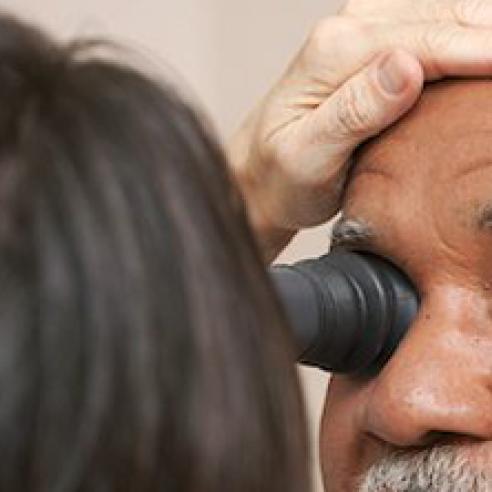
Routine screening of older African Americans for glaucoma -- a high-risk group -- would significantly reduce the incidence of blindness at relatively low cost, RPB researchers report in a recently published...
Gene Therapy for Inherited Blindness Takes Another Step Forward

Researchers further improved vision in three adult patients previously treated in one eye. After receiving the same treatment in their other eye, the patients became better able to see in dim light, and two were...
Potential New Treatment Target for Retinoblastoma

RPB researchers have identified the mechanism that causes a rare and aggressive cancer that can be fatal if diagnosed at an advanced stage. What's more, experimental drugs already in clinical trials for...
RPB Chair, David F. Weeks, Steps Down After 50 Years

Diane S. Swift to become Chair at Research to Prevent Blindness David F. Weeks stepped down as Chairman and CEO of Research to Prevent Blindness (RPB) at the end of 2011, after having served the organization for 50...
Revolutionary Scanner Detects "Lazy Eye" in Children With High Degree of Accuracy

RPB researchers have developed and tested a simple, seconds-long screening exam with a handheld scanning device to enable pediatricians to identify amblyopia, the leading cause of vision loss in childhood, in...
New Hope In Fight Against AMD

A gene therapy approach using a protein called CD59, or protectin, shows promise in slowing the signs of age-related macular degeneration (AMD), according to a new in vivo study by RPB-supported researchers at...
Dry AMD Breakthrough

Researchers, led by RPB-supported Dr. Jayakrishna Ambati, have discovered a molecular mechanism implicated in geographic atrophy, the major cause of untreatable blindness in the industrialized world. They have also...
Breakthrough Gene Therapy Prevents Retinal Degeneration
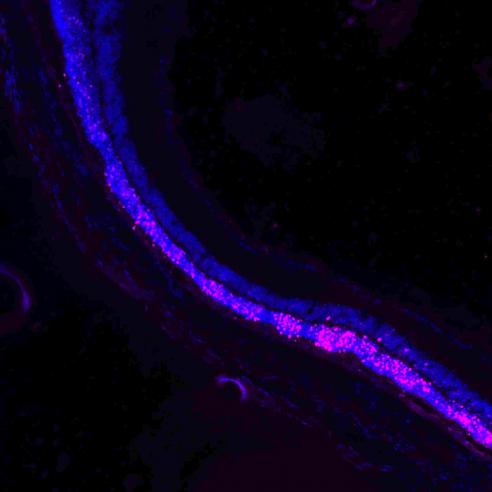
RPB-supported researchers at Tufts University School of Medicine and the Sackler School of Graduate Biomedical Sciences at Tufts have demonstrated that non-viral gene therapy, delivered by nanoparticles, can delay...
Resveratrol May Prevent Some Blinding Diseases

Resveratrol — found in red wine, grapes, blueberries, peanuts and other plants — stops out-of-control blood vessel growth in the eye, according to vision researchers at Washington University School of Medicine...
Healthy Diet May Reduce Cataracts in Women

Women who eat foods rich in a variety of vitamins and minerals appear to have a lower risk of developing cataracts, according to a large population study.Read the press release.Read the article.Read the abstract.
50 Years of Research to Prevent Blindness

Since it was founded in 1960, RPB has been a catalyst in vision research, responsible for spawning a vibrant community of eye research institutions, for initiating the movement that led to the creation of the...
First Signs of Glaucoma Appear In The Brain, Not The Eyes
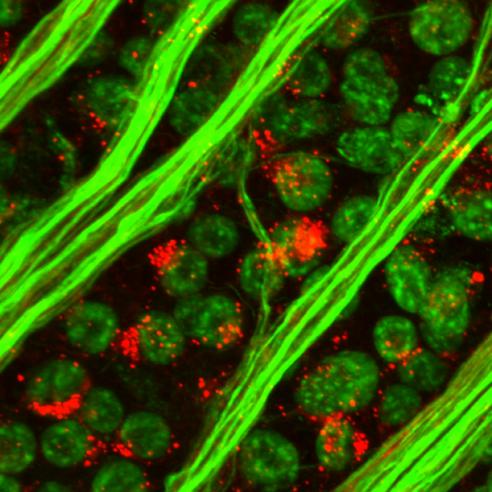
Many glaucoma patients experience vision loss despite efforts to manage ocular pressure. Now, researchers are a step closer to understanding why...and treating it. The findings represent a paradigm shift in...
New Tool for Gene Delivery

RPB-supported researchers have developed a new tool for gene therapy that significantly increases gene delivery to cells in the retina compared to other carriers, without using a virus, the most common means of DNA...
Smoking Past Age 80 Worsens AMD Risk, Also Linked to Uveitis

Smokers 80 and older who don't quit will face an ever-rising risk of macular degeneration beyond that associated with age, RPB researchers said. The study's findings were also consistent with previous...
New Retinal Disease Discovered
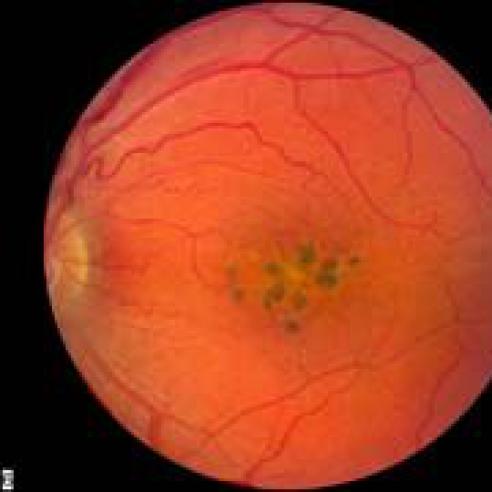
RPB-supported researchers have found a new, rare inherited retinal disease. The investigators hope that finding the genetic cause will increase understanding of more common retinal diseases. The macula,...
Curing Color Blindness

Research teams at three RPB-supported institutions have collaborated in curing color blindness with gene therapy, the second successful application of gene therapy in treating an eye disorder. RPB also supported the...
Major Breakthrough in Early Detection and Prevention of AMD
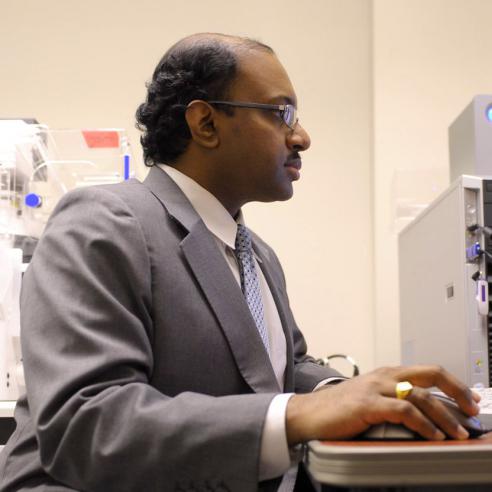
RPB-supported researchers have discovered a biological marker for wet age-related macular degeneration (AMD) that shows strong potential as a means for both early detection and preventive treatment. "This is a...
Stem Cell Therapy Makes Cloudy Corneas Clear

Stem cells collected from human corneas restore transparency and don't trigger a rejection response when injected into eyes that are scarred and hazy, according to experiments conducted by researchers at the...
Learning to See Again After Stroke

By doing a set of vigorous visual exercises on a computer every day for several months, patients who had gone partially blind as a result of a stroke regained some vision. Some could drive again. "This is...
Novel Pathway Helps Eyes Quickly Adapt to Darkness

Scientists have uncovered a previously unknown pathway in the retina that allows photoreceptor cells to adapt following changes in light exposure. The discovery could help scientists better understand diseases...
“Smart” Contacts May Someday Test for and Treat Glaucoma
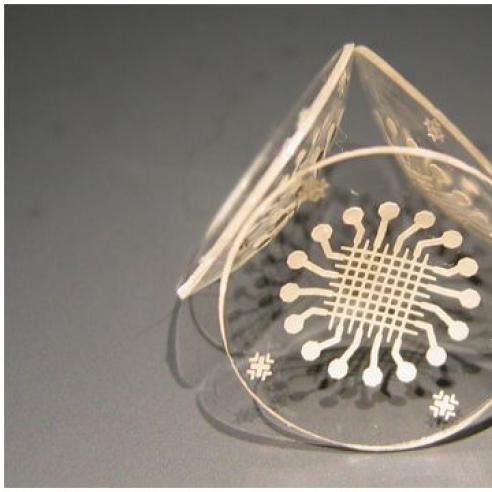
Scientists have designed and tested a pressure-sensing contact lens that will, in the future, allow glaucoma patients to monitor their eye pressure at home, providing more detailed and continuous information in...
New View Inside the Eye Helps Prevent Glaucoma

A unique, new, non-invasive imaging device allows eye doctors to see areas inside the eye that previously were impossible to view, and to detect narrow angle glaucoma before it can cause sudden, painful loss of...
Eye Divergence in Children Linked to Risk of Mental Illness

Children whose eyes are misaligned and point outward are at significantly increased risk of developing mental illness by early adulthood, according to findings of an RPB-supported, Mayo Clinic study published in...
Stem Cells Generate New Retinal Cells Necessary for Vision

Pluripotent stem cells — those, like embryonic stem cells, that give rise to almost every type of cell in the body — can be converted into the different classes of retinal cells necessary for vision, according...
Thyroid Problems May Increase Glaucoma Risk
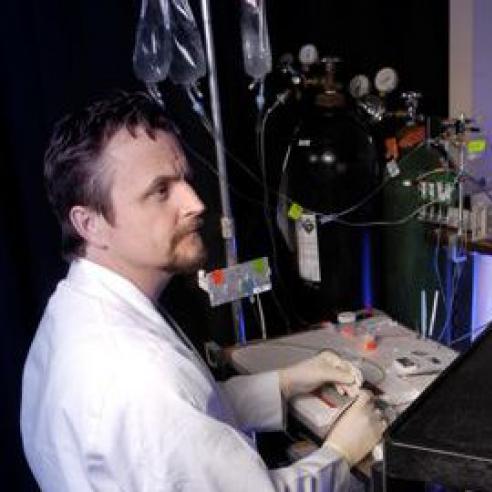
According to an RPB-supported study, people who have had a thyroid condition at some point in their life are at an increased risk of developing glaucoma. The link between glaucoma and thyroid disorders may be due to...
How Cells Die Determines Whether Immune System Mounts Response

An RPB vision researcher's finding could have important implications in the treatment of autoimmune diseases and cancer. Read story.Thomas A. Ferguson, Ph.D., Washington University School of Medicine,...
New Vision Screening Device Provides Early Warning of Diabetic Eye Disease

RPB-supported research yields test that could give doctors and patients a head start on treating diabetes and...
Gene Therapy Proven Effective for Patients with Inherited Retinal Disease

Researchers have used gene therapy to safely restore vision in three young adults with a form of retinitis pigmentosa known as Leber's congenital amaurosis (LCA), an inherited retinal disorder that reduces...
RPB-Supported Scientist Revolutionizes Gene Research

A dramatic new study, supported by Research to Prevent Blindness, questions some of the mechanisms underlying a new class of drugs based on Nobel Prize-winning work designed to fight diseases ranging from...
Discovery Opens Path for Drugs to Treat, Prevent Devastating Eye Diseases

SALT LAKE CITY –Two major eye diseases and leading causes of blindness—age-related macular degeneration and diabetic retinopathy—can be reversed or even prevented by drugs that activate a protein found in...
Macular Degeneration, Diabetic Retinopathy Reversed

Two leading causes of blindness can be reversed or even prevented by drugs that activate a protein found in blood vessel cells. The discovery is an example of basic science research yielding a discovery with direct...
New Hope for Regenerating the Human Retina

In a radical breakthrough, RPB scientists have demonstrated the possibility of chemically signaling the eye's own resources to regenerate retina cells, without transplanting retinal tissue or stem cells. ...
RPB Supports World Glaucoma Day 2009

As a major contributor to the comprehensive effort to treat, prevent and cure glaucoma, Research to Prevent Blindness is joining with institutions and organizations worldwide to...
RPB Supports Development of Device for Early Warning of Eye Disease

Ann Arbor, MI – Scientists at the University of Michigan have shown that their new metabolic imaging instrument can accurately detect eye disease at a very early stage. Such a device would be vision-saving...
RPB Supports Breakthrough Finding In Eye Development, Eye Cancer

On the heels of identifying the specific type of cell that gives rise to retinoblastoma, RPB-funded researchers at St. Jude Children’s Research Hospital are solving a long-standing mystery about how the eyes...
RPB Gave $10.24 Million In Grants In 2008

New York, NY, December 19, 2008 -- Research to Prevent Blindness (RPB), the leading voluntary health organization supporting eye research, awarded 100 grants totaling $10.24 million in 2008. Departments of...
Getting Around With Visual Impairment

People who could benefit from rehabilitation[Note: this is an older, but still potentially useful, article from the RPB archives.] Kathleen A. Turano, Ph.D. Associate Professor Wilmer Eye Institute, Lions...
Gender and Dry Eye

[Note: this is an older, but still potentially useful, article from the RPB archives.] David A. Sullivan, Ph.D. Associate Professor of Ophthalmology Schepens Eye Research Institute Harvard Medical School...
Diet and Ocular Disease

[Note: this is an older, but still potentially useful, article from the RPB archives.] Julie A. Mares-Perlman, Ph.D. University of Wisconsin-Madison Medical School Madison, Wisconsin SUMMARY Studies in the Beaver...
Crossed Eyes

[Note: this is an older, but still potentially useful, article from the RPB archives.] Eugene R. Folk, MD, Professor The eyes should work together as a team. When one eye is deviated (turned too far in one...
AMD: Retraining the Eye

[Note: this is an older, but still potentially useful, article from the RPB archives.] Janet P. Szlyk, Ph.D. Associate Professor Department of Ophthalmology & Visual Sciences University of Illinois at Chicago...
How Research to Prevent Blindness Worked To Advance Ophthalmology
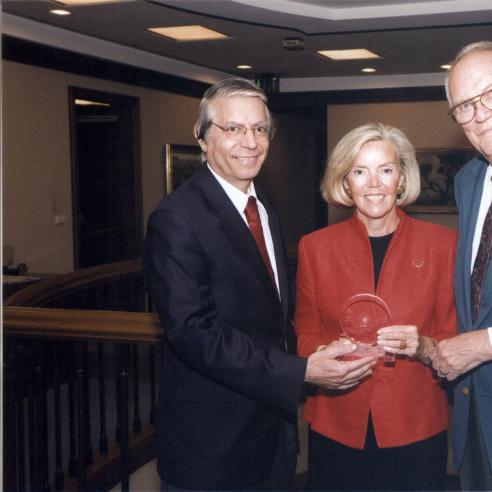
As recently as the 1960s, ophthalmology was a second-tier medical specialty in the United States. Most medical schools relegated eye care to the division of surgery. With little research money available, few basic...
Research Uncovers Insufficient Vision Care for Elderly In Nursing Homes

Authors of a series of recent reports are hoping they raise a red flag that will eventually help to improve the quality of life for many elderly people living in nursing homes. Not only does this population have...
Immune Cell Clues To Age-Related Macular Degeneration

An RPB researcher has found that the age of immune cells, called macrophages, may be key in determining whether damaging blood vessels will form beneath the retina and contribute to vision loss in age-related...
RPB Researcher Identifies Eye Cancer Cell

October 18, 2007--An RPB-supported researcher and a team of investigators at St. Jude Children's Research Hospital have identified the cell that gives rise to the eye cancer retinoblastoma, disproving a...
RPB Grants Surpass $9 Million In 2006

New York, NY, January 30, 2007 -- Research to Prevent Blindness (RPB), the world's leading voluntary health organization supporting eye research, awarded 90 grants totaling $9.12 million in 2006 for research...
RPB Awards $5 Million In Grants to Support Eye Research

New York, NY, July 16, 2007-- Research to Prevent Blindness (RPB), the world's leading voluntary health organization supporting eye research, has awarded 46 grants totaling $5,161,600 for research into the...
RPB Chairman David F. Weeks Receives ARVO Award

New York, NY, May 6, 2007--David F. Weeks, Chairman of the Board of Research to Prevent Blindness (RPB), was selected to receive the 2007 Kupfer Award for distinguished public service on behalf of eye and vision...
Artificial Cornea: New Option for the Treatment of Corneal Conditions

Over the years, research has led to developments that have improved the success of corneal transplantation, but there is still a group of people for whom traditional cornea transplants usually fail. That's...
Researcher Receives RPB Award for Innovative Technology

An innovative use of technology that shows promise in advancing knowledge of the causes of congenital degenerative diseases of the eye, such as retinitis pigmentosa, has earned SUNY Upstate Medical University...
Subscribe
Get our email updates filled with the latest news from our researchers about preventing vision loss, treating eye disease and even restoring sight. Unsubscribe at any time. Under our privacy policy, we'll never share your contact information with a third party.
| General Info | Research Scientists & Grantees | Eye Care Specialists | Donors & Partners |



